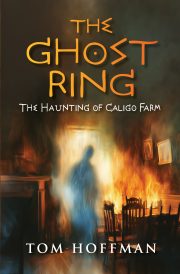The Ultra-Novelist
by Hunter Liguore
A recent article in Trail Runner Magazine (10/2018) shared the story of Gunhild Swanson, a 70-year-old woman, who ran a 100-mile ultra-marathon. Midway, she’d taken a wrong turn, and ended up three miles out of her way before she’d noticed; she had to turn back and make up the three miles, before picking up the trail again. It put her an hour behind. When she finally made it to the finish line she’d been running for 29 HOURS, 59 MINUTES, and 54 SECONDS. With 6 SECONDS to spare, she finished! Had she been even a second over, she would’ve been disqualified.
This is one of those incredible stories about endurance, but it also carries with it a deeper meaning of how we can take wrong turns, have to retrace our steps, and not give up.
When it comes to writing, especially the novel, we can never give up! We’re essentially running our own ‘ultra-marathon.’ Looking at a runner who will traverse 100 miles over 30 hours, we must see the significant amount of training that went into this. Considering the above scenario, this ultra-runner must’ve spent at least half to a full year of deliberate planning/training just for this one race. Add to it her age and the amount of time, discipline, races, miles, ups/downs, etc., that her life-experience brought.
Writing a novel takes just as much discipline, practice, planning, and training. But how many novelists are willing to put this amount of time into it? As Hope C. Clark, at FundsforWriters, pointed out in a recent newsletter op-ed (9/17/2018), “In this day and time, with the crazy array of self-publishing tools available to writers, we can sense a pressure to publish a book a month. Yes, I’m not exaggerating.” The books, she points out, are often rushed, and “miss the depth of plot.” As she puts it, “You cannot write deep and publish in a month.” I agree. You can write something in a month, but going deep… that’s a whole other magical level.
Making goals is one effective method of planning for a novel. Done in community with other writers, like #amwriting on Twitter, it can offer encouragement and support. Running groups do it religiously by sharing their runs and miles. Writers can share progress and word counts. Often, if there is no writing, there is nothing to report: it happens to the runner and writer alike. In fact, when we see others completing work, for some, rather than take it as a rallying call to join, they find deeper fault with their own lack of accomplishment and shirk away. The more the novel sits, the more that crippling feeling arises, where it’s easy to just say, “I’ll start something new,” or “Maybe another day.” But we cannot give up!
Planning for your novel
Writers need to spend time in preparation and planning, especially when it comes to the long hours—maybe even years—of writing a novel. Yes, like an ultra-runner, we wouldn’t start out attempting 100 miles. What follows are some essentials for every ‘Ultra-Novelist.’
PRACTICE
Crafting short stories, articles, or poems are great workouts. Exercises and prompts are also fun and essential to tightening our mental-muscles and developing our creativity. Take writing classes, where you can spend time ‘fun-writing’ with ease. Starting your day with a writing-prompt can be a form of ‘stretching.’ The more we can find our perfect ‘pace,’ the more we can improve it. If you put in your time practicing the craft, before you start your novel, you’re more likely to succeed in finishing it.
WRITING ROOM
Making a special place to write is like getting a good pair of running shoes. The right place will induce a calm and mental demeanor to step straight into writing, even if you only have ten minutes or an hour. Once you sit in your special spot, just like when a runner hits the trail, your creativity will kick in. If you don’t have an area in your house, rent an office, or use space at the library. Decorate with posters. Add books, incense, or the soothing sounds of the ocean—anything to make it yours. Have a mantra you say before you start each writing session. Mine is, “Whatever I write today, need not be perfect or have any importance.” It reminds me that I will do my best without any pressure.
FUEL UP
Fuel is key to a runner. For writers, we might not eat a big meal that will slow our system, and make us sleepy, when it’s time to write—or over-caffeinate so that we’re anxious and jittery, and can’t sit in the chair. Equally, planning ahead to have meals or snacks available, to go the distance, is also important. There is nothing worse than being hungry to break your stride right in the middle of a big scene. I’ve also noticed if I’m hungry, my characters are too! So plan ahead. Prepare snacks and beverages beforehand to write uninterrupted.
THE WRITER’S HIGH
When a writer hits their stride, it means they’ve cut out all distraction. When we can spend time in deep concentration, we discover a place where only our characters and novel exists, without effort. It takes mastery to get here. The smallest intrusions can shake you from it, so we need to foster writing time without interruption. Then the writing really takes off. You’ll see connections in the story that you might not have seen. Time slows. Suddenly, you trust that ‘everything is as it should be.’ Identify what intrudes on your writing. If you’re writing and checking social media every ten minutes—or more than once a day—you’ll never find this treasure trove. Address your distractions, even if it’s uncomfortable. A secret writing land awaits you.
JOURNALING
Start every writing day by journaling your immediate goals, and then in the evening, return to it, and review your efforts, evaluating whether you achieved what you wanted to, and if not, make a new plan for tomorrow. In my journal, I also plan how I’ll meet my duties, outside of writing, identifying obstacles I may foresee, and create solutions to work through them. It takes honest criticism to see what you’re doing well and not so well. If, for instance, you notice you stop writing around the holidays, put something in place to avoid it next time. In your journal, you can also ‘talk-through’ your story and plot, and plan what you want to develop. Over time, the journal will serve as a record of how much you’re changing and improving, (the novel too), while also showing you your patterns and habits to correct.
INTEGRITY
What I learned from training for my novel boils down to one word: integrity. Every hour I spend writing I ask myself if I’ve been true to myself and to the book. Integrity is twofold. There is the integrity needed in being honest with ourselves with whether or not we’re putting an honest effort in to complete our work; there is also the integrity for the story, we need embrace, in order to ensure we’re writing without the intrusion of society, critics, market, trends, and so on. If you’re writing with a voice saying, ‘an editor/agent won’t like this scene, because it’s too (fill in the blanks), you might be losing the spirit of your novel.
FINISH LINE
Getting to the ‘finish line’ of my novel, I discovered that the work came easily, when I trusted my intuition over anyone or anything else. In the end, we have our own race to run, (or novel to write) and no one can do it for us. If we want to finish, we need to be honest with the path we took, the training hours we put in, and if we take wrong-turns, be willing to go back and start again—and if ever we lost our way, we need to pick up the trail again, and keep going. If that novel isn’t getting finished or you’re writing so quickly, that you’re missing the finer points, then reevaluate your efforts and make changes.
Today, the only thing that matters when my novel is ‘done,’ is the honest effort I held all the way through the process. That’s when I’m invincible, and I know I crossed the finish line.
•••
Hunter Liguore teaches writing at several universities in New England. An award-winning writer, her work has appeared in numerous publications, internationally. Her recent novella, L’ultimo Orso Polare, has been published and available in Italy.


